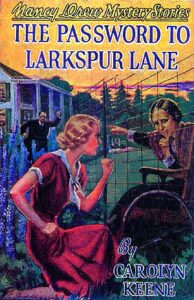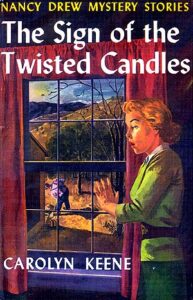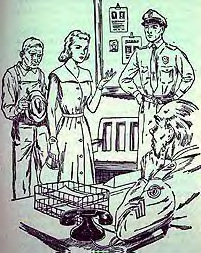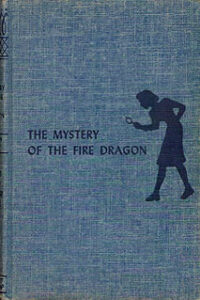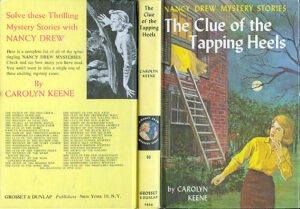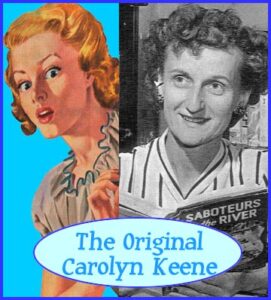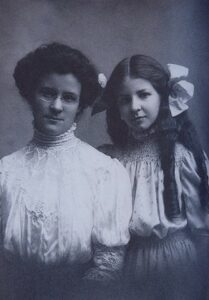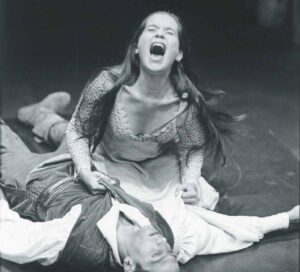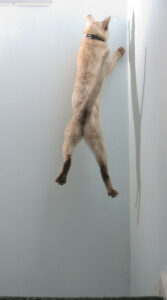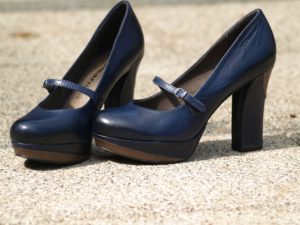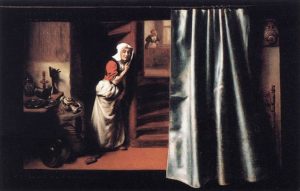by Debbie Burke
@burke_writer
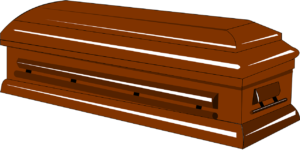
Today, please welcome a brave Anonymous Author with a story entitled Freets.
FREETS
By –
ONE
The coffin was nearly ready. Andy Turbett knuckled sweat off his brow and stepped back to get a good look at the lid. It was as fine a piece of wood as he’d ever had on his bench and the work was going well. Hmm, maybe a tiny shave off the side. He reached for a spokeshave just as Ruth came into the barn, toting some colourful paper stuff under her arm. Bright sunshine framed her.
“Andy,” she said, nodding, with her bunchy smile.
“Hello, lass. Come to check up on me, have tha?”
She looked at the side panels and base of the coffin leaning in a corner, waiting to join up with the lid. “Oh, you are getting on fast. I did come to say maybe we won’t need it so soon after all. Not if Dan has it his way.”
Andy blew at the curls of wood that he’d planed off. They joined the rest of the wood debris on the long dirt floor. “Ah, well. Can’t say I disagree with him there.”
“Grandad needs to die,” Ruth said.
Andy made a non-committal sound. Her husband would never let her do it, and what he said went. Not one to let the wife put her foot out the door first after the wedding, wasn’t Dan. “What’s that paper?” he said, to change the subject.
“Oh, I made a banner to hang in the tea-shop. Tha won’t miss this afternoon, will tha?”
“Nay. Got to wash and change first, I’m sweating like a beast.” He took a pull from the pint-glass of water on the floor. Warm and dusty, but it’d do. “This weather. Got to be a record.”
“That’s what they’re saying.” She watched him. “There’s some houseleek growing by the rocks in the woods, I’m going tomorrow if tha wants me to get -”
“Nay,” he said. “Nay.” God, this little apple-cheek lass scared him sometimes. He took up the spokeshave again.
“Oh, Andy. I do wish tha knew it’s all right if tha treats it with respect.”
“Nay, best to leave ’em alone. I know tha thinks different, being so young and -” There. He should have kept his mouth shut after all; she wasn’t one to take offence, but you never knew, what with her thinking herself as much a daughter of the village as Fiona, his own wife.
~~~~
With TKZ first page critiques, the focus is usually on what’s not working and how to best fix it. Once in a while, a submission comes in that is so good, it’s more useful as an example of how to do things right.
Freets is such a submission.
However, I have to say that title put me off. How many readers know what a freet is? I didn’t. How many will take the time to look it up?
According to Wiktionary.org, freet is:
- A superstitious notion or belief with respect to any action or event as a good or a bad omen; a superstition. quotations ▼
- 1824, John Mactaggart, The Scottish Gallovidian Encyclopedia, page 263:
If the old “freet” be true “ that those who fall when at the handspake aneath the corpse, will soon be the corpse themsell,” there would soon be a good few corspes; for at these “druken” concerns, the bearers are falling some of them every now and then.
- A superstitious rite, observance, wont, or practise. quotations ▼
- 1903, Samual Ferguson, The Fairy Well of Lagnanay:
Oh, sister Ellen, sister sweet, Come with me to the hill I pray, And I will prove that blessed freet!
- A charm.
Okay, once we understand the meaning, Freets has the components of a great title—identifies a story problem, hints at the conflict, and evokes a wonderfully sinister tone.
However, the obscure meaning is a big negative. Perhaps the author can add a subtitle. A vivid, compelling cover is a must; otherwise, browsing online shoppers may pass it by because of the unfamiliar word. Also, define freets in the book description or jacket copy.
That’s the biggest nit I have with this submission.
At TKZ, we talk a lot about starting with action rather than static weather descriptions, backstory, or a character contemplating her navel. Jim Bell recommends opening a story with a “disturbance,” which doesn’t have to be violent or loud.
This submission avoids those common pitfalls. Each sentence is deliberately crafted and performs multiple functions, drawing the reader deeper into the story. I’m going to examine individual sentences and explore why they work.
Sentence 1 – The coffin was nearly ready.
This quiet, simple, declarative sentence caught my attention immediately. Death is a monumental disturbance yet the matter-of-fact tone sets an understated mood. The implication is that death has already occurred or is imminent. I’m guessing the genre is mystery, suspense, or horror so death is likely to mean murder.
Consider making this first sentence its own paragraph for more dramatic impact. See Kris’s excellent post on paragraphing.
Sentences 2, 3, 4 – Andy Turbett knuckled sweat off his brow and stepped back to get a good look at the lid. It was as fine a piece of wood as he’d ever had on his bench and the work was going well. Hmm, maybe a tiny shave off the side.
Andy’s character is introduced without superficial details about age and appearance but instead drills straight into his values, beliefs, and skills. He is a diligent woodworker who appreciates quality materials, is a perfectionist, and takes pride in his craft. “Knuckled” is a great active, visual verb.
Building a coffin by hand suggests the time period is historical rather than contemporary.
Sentence 5, 6 – He reached for a spokeshave just as Ruth came into the barn, toting some colourful paper stuff under her arm. Bright sunshine framed her.
Spokeshave is clearly a tool of his trade, even though the term was unfamiliar until I looked it up (see illustration). It also confirms a historical period, because he doesn’t reach for, say, a power sander.
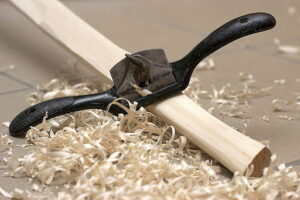
Spokeshave – Wikimedia Commons
The spelling of colourful indicates the locale may be the British Isles.
The second character, Ruth, is introduced. Setting details (a barn) and weather (bright sunshine) are also established in an active way rather than as static description. The sun isn’t just shining—it frames Ruth, doing double duty as a weather report and an active verb.
Sentence 7 – “Andy,” she said, nodding, with her bunchy smile.
Bunchy is another unfamiliar word yet it evokes a great visual of a big mouth with lots of teeth. Turns out it’s an adjective, dating back to about 1400 AD, that means protuberant or bulging.
Sentence 8, 9 – “Hello, lass. Come to check up on me, have tha?”
Lass and tha are additional indicators the setting is Great Britain. Tha easily translates to you without stopping the reader. When I looked it up, I found it is Yorkshire dialect.
Sentences 10-13 – She looked at the side panels and base of the coffin leaning in a corner, waiting to join up with the lid. “Oh, you are getting on fast. I did come to say maybe we won’t need it so soon after all. Not if Dan has it his way.”
When Ruth says they might not need the coffin yet if Dan has his way, I’m totally hooked. Who is dying? More important, who is controlling how and when the person dies? Obviously there is more going on than an ordinary death due to natural causes.
Sentences 14-17 – Andy blew at the curls of wood that he’d planed off. They joined the rest of the wood debris on the long dirt floor. “Ah, well. Can’t say I disagree with him there.”
Again, the author incorporates description into action. Curls of wood is a vivid visual. Long dirt floor reinforces the historical time period.
Andy’s response suggests conflict lurking under the surface of apparent calm.
Sentence 18 – “Grandad needs to die.”
Wham! The author immediately gets to the core of Ruth’s character. She wants her grandfather dead and appears ready to help him along if he doesn’t go willingly, even though her husband disagrees.
Sentence 19 – Andy made a non-committal sound.
Sometimes what’s not said is more revealing than what is said. Andy’s non-response shows that not only does he want to avoid a confrontation with Ruth, but he may be intimidated by this outspoken woman who might be capable of murder.
Sentences 20, 21, 22 – Her husband would never let her do it, and what he said went. Not one to let the wife put her foot out the door first after the wedding, wasn’t Dan. “What’s that paper?” he said, to change the subject.
This statement of opinion reveals more insight into Andy’s beliefs, as well as delivering a glimpse into the relationship between Ruth and her husband, Dan. Not one to let the wife put her foot out the door first after the wedding, wasn’t Dan is an incredibly awkward sentence, yet it sounds authentic to the historical time period. It expresses Andy’s analysis of the marriage in a quaint, archaic way that’s still understandable to contemporary readers.
Sentences 23, 24 – “Oh, I made a banner to hang in the tea-shop. Tha won’t miss this afternoon, will tha?”
Apparently a public meeting is planned about an unspecified topic. Grandad? Or something else? The author is dropping questions like breadcrumbs. The reader will follow the trail to find answers and keep turning the pages.
Ruth adds another slightly veiled threat to Andy that he better show up.
Sentences 25-31 – “Nay. Got to wash and change first, I’m sweating like a beast.” He took a pull from the pint-glass of water on the floor. Warm and dusty, but it’d do. “This weather. Got to be a record.”
“That’s what they’re saying.”
This gives another revelation of Andy’s character as well as amplifying the weather and setting. He works hard and appreciates the small reward of a warm, dusty glass of water.
At the same time, these innocuous sentences show him trying to change the subject to avoid the unease of talking with Ruth. The author makes the setting description do double duty to point out conflict and tension.
Sentences 32, 33 – She watched him. “There’s some houseleek growing by the rocks in the woods, I’m going tomorrow if tha wants me to get -”
Already the reader has the sense that being watched by Ruth makes Andy uncomfortable. I didn’t know what houseleek was but, right away, I suspected poison.

Houseleek – Wikimedia Commons
Turns out it’s a succulent plant, also called hens-and-chicks, that was used medicinally to treat diarrhea, burns, and mouth ulcers. Even so, Ruth’s sinister aura makes the reader wonder how else she plans to use houseleek.
Sentences 34-37 – “Nay,” he said. “Nay.” God, this little apple-cheek lass scared him sometimes. He took up the spokeshave again.
Andy interrupts Ruth and repeats Nay twice for emphasis. Short, punchy sentences mirror his fear. He’s worried enough to pick up a possible weapon. Additionally, the reader learns more about Ruth’s physical appearance.
Sentence 38 – “Oh, Andy. I do wish tha knew it’s all right if tha treats it with respect.”
Ruth chides him while reinforcing the hint that houseleek is potentially toxic if not treated with respect. She’s also trying to reassure him. I can almost hear her next statement: “One little taste won’t hurt tha a bit. Here, try some.”
Sentences 39-42 – “Nay, best to leave ’em alone. I know tha thinks different, being so young and -” There. He should have kept his mouth shut after all; she wasn’t one to take offence, but you never knew, what with her thinking herself as much a daughter of the village as Fiona, his own wife.
Andy challenges Ruth and immediately regrets his statement. Uh-oh, you never knew if Ruth might take offence. The unspoken threat is clear—she may be capable of evil acts. He also appears to think she’s presumptuous, considering herself a daughter of the village as much as his own wife. That indicates Ruth is an outsider, who has brought youthful, possibly dangerous beliefs and omens–freets–to the village.
By now, I’m eager to turn the page…except the submission is over. Drat!
Today’s brave author provided a case study of how to effectively open a novel. Each sentence does double or triple duty—showing description incorporated into action, and revealing character and conflict. There is no pointless meandering.
While we don’t yet know the specifics of time period or locale, carefully chosen details give enough hints without bogging down in exposition. Each sentence builds on the previous one, inexorably marching forward, carrying the reader into a story full of intrigue and promise.
In one page, the author establishes s/he is as skilled in the craft of writing as Andy is in woodworking.
Thank you, Brave Author, for submitting this excellent page. Keep us posted when it’s published.
Just because I was taken by this piece doesn’t mean all readers will be. TKZers, do you have differing opinions or points? How might you handle the story?
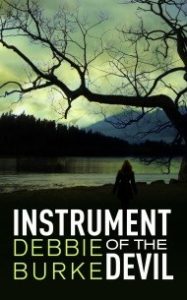 Debbie Burke regularly launders money when she throws jeans in the washer w/o checking pockets. Her thriller Instrument of the Devil is on sale during April for only 99 cents. Here’s the link.
Debbie Burke regularly launders money when she throws jeans in the washer w/o checking pockets. Her thriller Instrument of the Devil is on sale during April for only 99 cents. Here’s the link.

